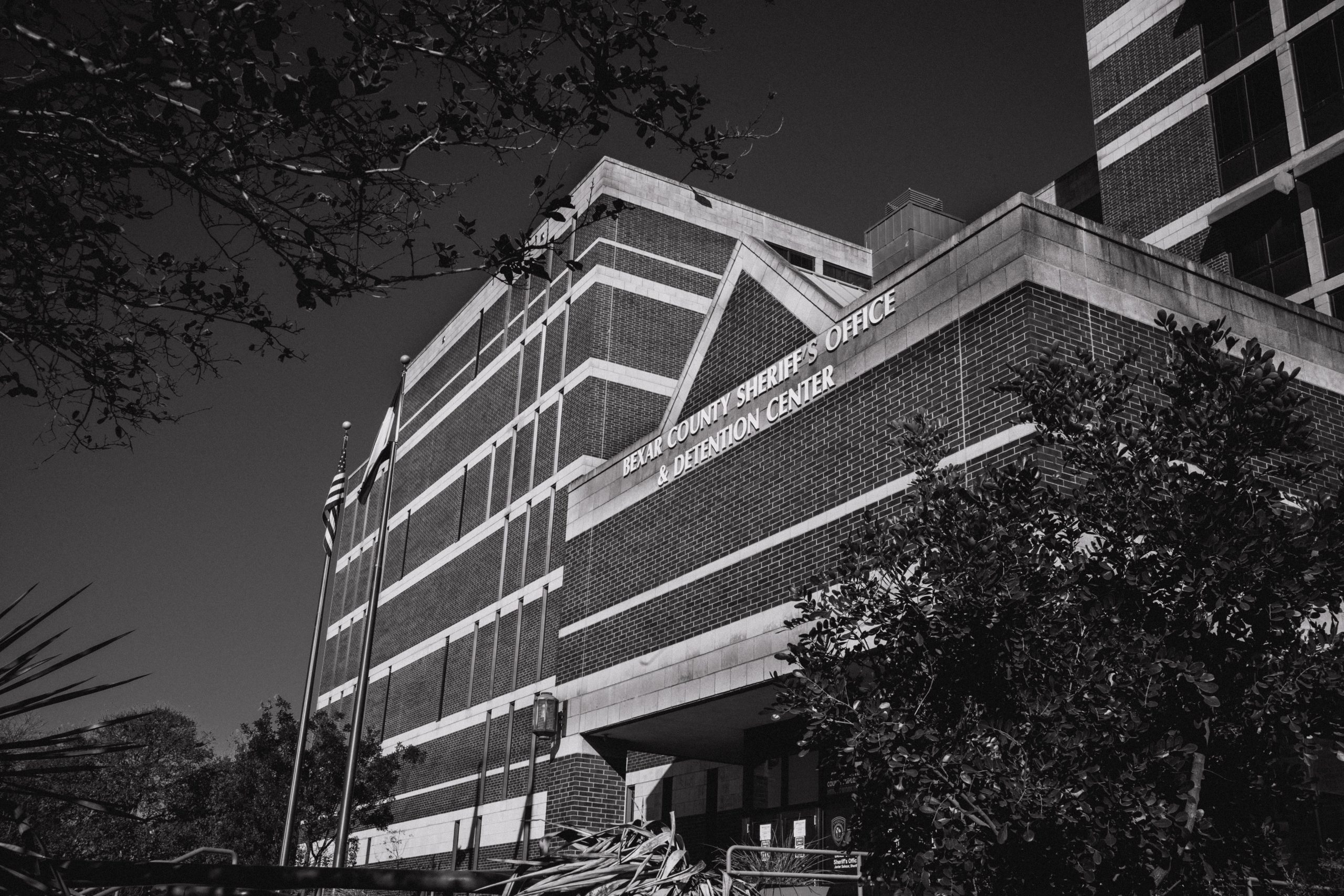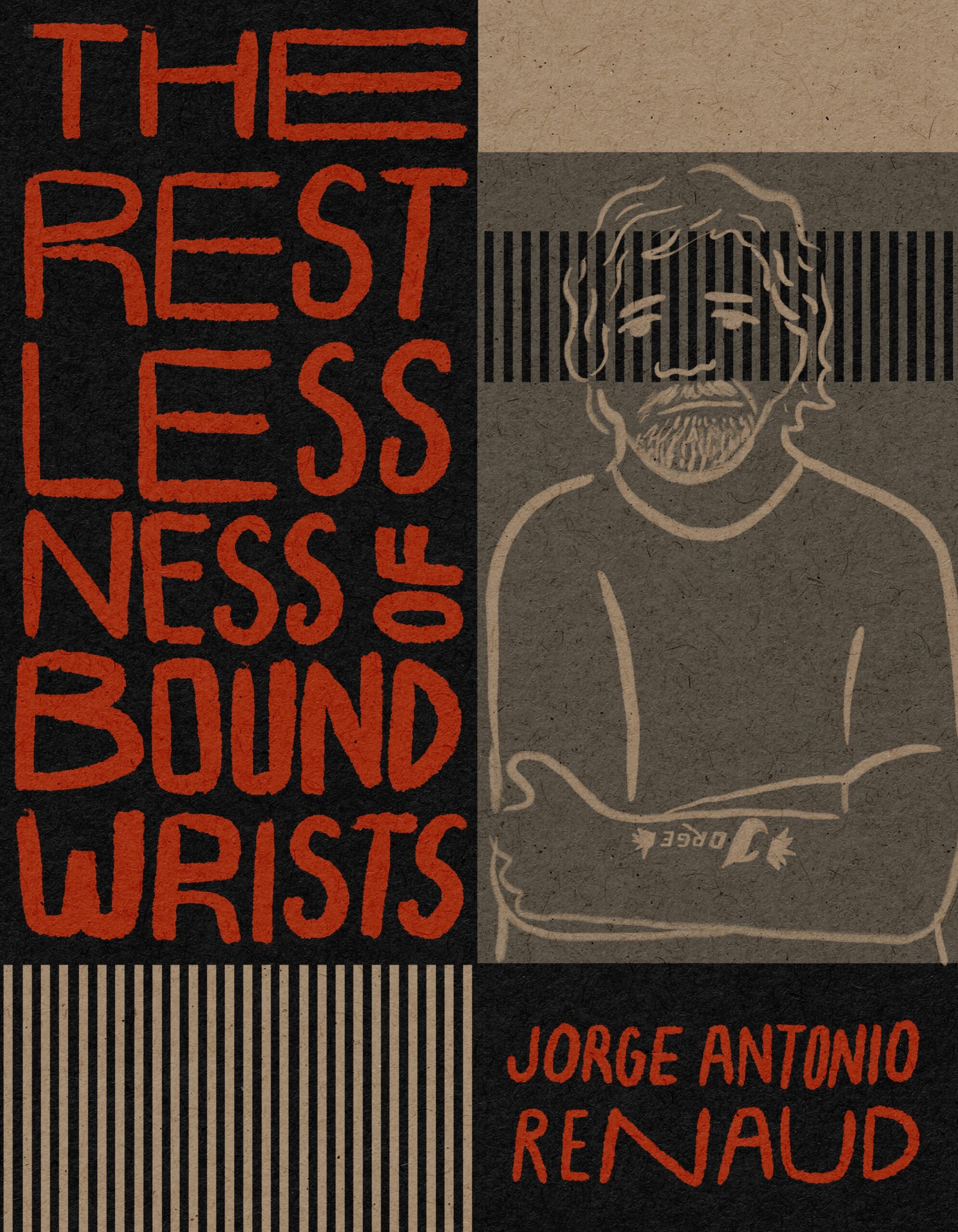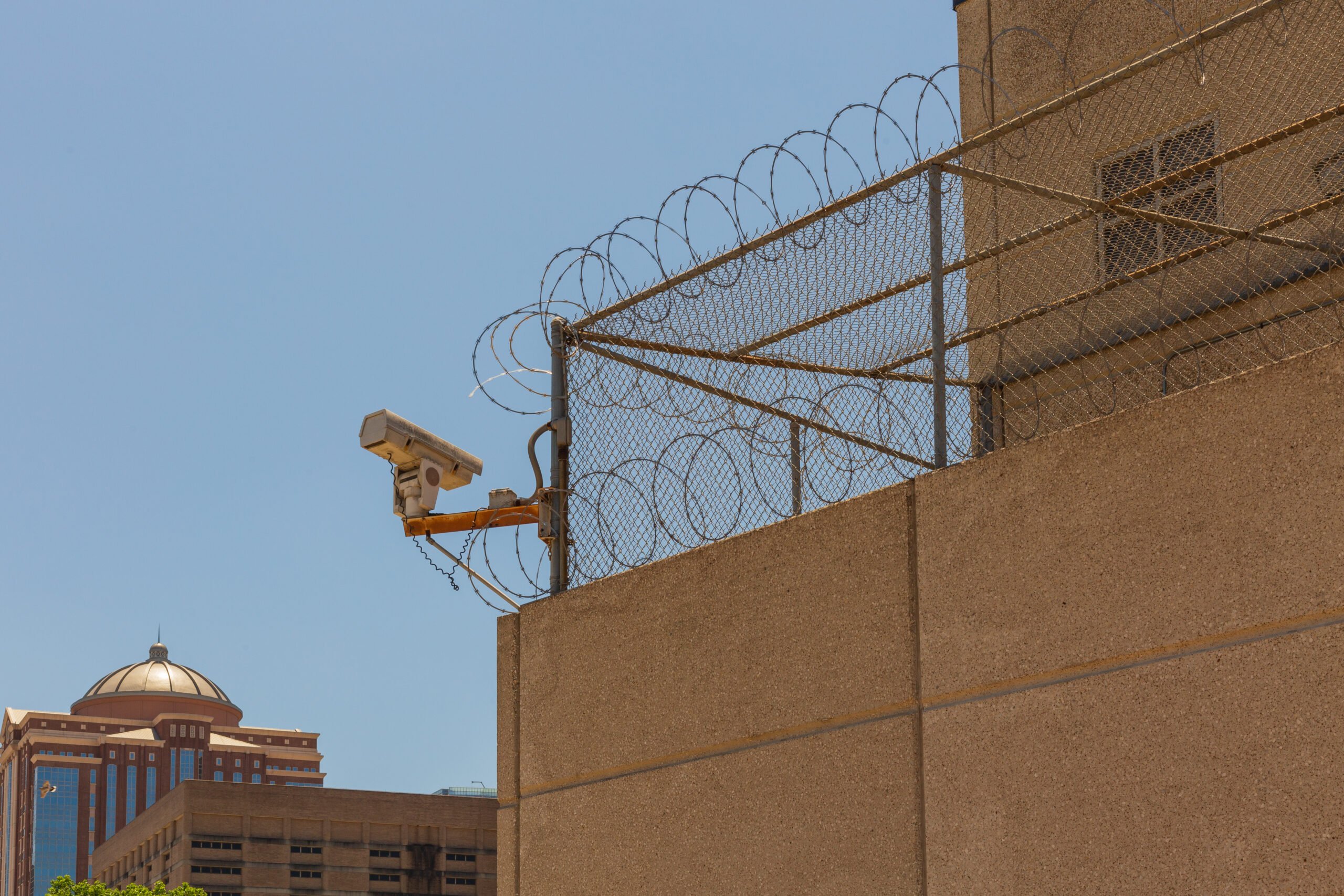
In Bexar County, A Hybrid Program To Help Indigent Defendants
A new “managed assigned counsel” system has been created in the county to help jailed people get better legal representation.
Update: This article has been amended to correct errors regarding the Bexar County managed assigned counsel system.
In 2010, Laquita Garcia was wrongfully arrested on a theft charge. Unable to pay the $30,000 bond, she ended up sitting in jail for over a year—longer than the crime’s maximum penalty. Garcia could not afford a private attorney to represent her and was appointed a lawyer by a judge. But Garcia’s lawyer never came to see her while she was in custody. He never called. He never investigated. The first time Garcia saw the attorney, she says, was minutes before she entered a plea deal. She was finally found not guilty of the theft charge by a judge and was released in 2011. After her release, Garcia set about helping those failed by the Bexar County criminal justice system. She’s now the policy coordinator of the Texas Organizing Project (TOP), a nonprofit with bases in San Antonio, Dallas and Houston.
Late last year, Garcia’s group won one of its biggest victories yet—a new system of criminal defense for Bexar County. The managed assigned counsel system, or MAC, will reduce jail time for people who have not been convicted of crimes and secure better representation for indigent defendants, Garcia says. MAC systems have been tried elsewhere in the state—with varying degrees of success—but advocates generally consider them to be an upgrade from the court appointment system used in most Texas cities.
Garcia’s passion for this work is critical—her story is alarmingly typical in the county, where about 80 percent of criminal defendants are indigent, meaning they’re unable to pay for a private attorney. Two years ago, TOP collected more than 3,000 surveys from local community members asking them what changes they’d like to see in their criminal justice system. The No. 1 response: Get rid of court-appointed attorneys.
On the surface, the problem of court-appointed attorneys may not seem that significant. After all, the criminal justice system—especially in Texas—is riddled with inadequacies. But for years the topic has been top of mind for criminal justice reformers, who say that attorneys appointed by judges tend to do a poor job of representing indigent clients.
This system of indigent representation can be traced back to 1963, when the U.S. Supreme Court ruled in Gideon v. Wainwright that every person accused of a serious crime has the right to an attorney. While many other cities across the nation established what are known as “public defenders” for this purpose, Texas took a different track, choosing to rely instead on ad hoc participation from the private bar on a case-by-case basis.
“What you end up with is something resembling a plea mill,” says Geoff Burkhart, the executive director of the Texas Indigent Defense Commission (TIDC), referring to the assembly-line manner in which attorneys pressure indigent clients to accept guilty pleas.
Bexar County is already home to its own public defender’s office, but it’s simply not enough to handle the county’s massive caseload. A report published by TIDC in 2021 found that, although Bexar’s public defender has helped defendants avoid 3,615 actual jail days in a year, its lawyers are strapped with high caseloads that have impeded their ability to take on appeals, meet critical deadlines and, ultimately, help clients get out of jail while they await trial.
“[There are] basic tasks you have to do in a case,” Burkhart says. “You have to appear in court, communicate with your client, conduct legal research, do factual investigations, file motions. What we’re finding in Bexar County is that [these tasks] don’t always take place.” Bexar County pays a meager $180 fee to attorneys for taking misdemeanor cases. “What can you expect for $180? Are [attorneys] going to go to the scene and take photos for $180?” Burkhart says. The paltry payouts lead some lawyers to take on more cases than they can handle—some attempt to juggle close to 500 cases per year. But there’s little oversight of the system.
Garcia frequently fields calls from incarcerated people who say they’ve had no contact with their appointed attorney. “They have no idea what’s going to happen when they go to court. We even get attorneys who call us on the day of their hearing because they can’t find their client and they want help getting them in the courtroom.”
Sometimes judges also feel pressured to reward private defense attorneys with cases in the event that these lawyers contributed to their judicial campaigns. The system resembles a “pay to play” situation in which attorneys, often relying on the income from indigent cases, secure spots on the rotating wheel by making political donations. According to a report from Texas A&M University’s Public Policy Research Institute, 15 attorneys in Bexar County were paid for more than 236 misdemeanors, and three attorneys handled more than 174 felonies.
On October 1, Bexar County joined Harris, Lubbock, Collin and Travis counties in attempting to reform indigent defense by implementing a managed assigned counsel system. As an independent service separate from the judiciary and from the preexisting public defender’s office, the MAC employs a team of administrators who hire and supervise attorneys and replace. Attorneys submit requests to hire investigators or experts to MAC supervisors. The MAC also helps train attorneys and has authority to discipline lawyers who don’t meet its standards.
MAC advocates say the reform should make all residents of Texas happy, even those who have traditionally opposed expanding indigent defense services. Studies indicate that MAC’s centralization of operations is highly cost-effective because it trims spending on wasteful administrative tasks and on the incarceration of innocent people. Counties that have implemented MACs have seen better rates of compliance with court orders and substance abuse treatment plans. The Lubbock County Private Defender Office, Texas’s first MAC, found that providing caseworkers to clients has reduced recidivism. In Collin County, which implemented a Mental Health Managed Counsel Program, taxpayers saved $630,000 after the program’s enactment in 2014. The average number of days spent in Collin County Jail has decreased and more criminal cases are being dismissed entirely.
Considering the dire conditions of detention centers across Bexar, helping residents avoid–and stay out of–jail from the start is critical. According to Texas Public Radio, almost half of the 4,500 people in Bexar County Jail were awaiting trial as of October; the Adult Detention was at 88 percent capacity. Although much of Bexar County Jail’s current overcrowding can be attributed to the judicial backlog caused by the pandemic, including the slow transition from in-person hearings to virtual ones, the truth is that these problems are longstanding.
Burkhart’s TIDC has agreed to fund the MAC with half of the $15 million grant it will receive across 4 years; Jim Bethke, former chief of Lubbock’s Private Defender Office, has been hired to direct the program, where he will oversee 16 salaried individuals. Slated to be the largest MAC in the United States, it’ll also be the first one in Texas to try to overhaul misdemeanor, felony and juvenile cases.
Garcia is proud of the progress she and others have made in Bexar County, but she still laments the 12 months of her life she lost. “Doesn’t change the fact that I was put in jail for a year for a crime I did not commit,” she says. At any rate, it looks like Garcia, alongside other reformers in Texas, are quickly making up for lost time.



